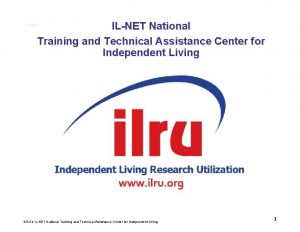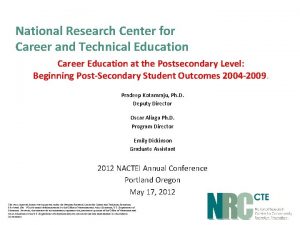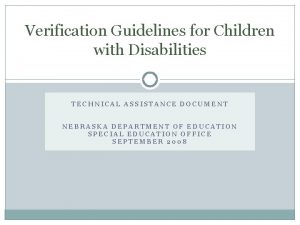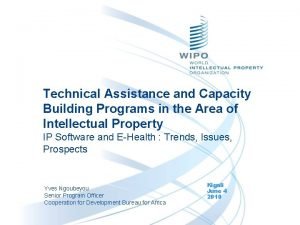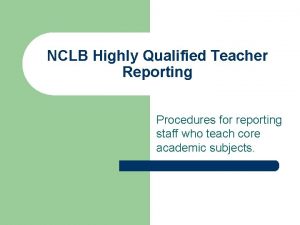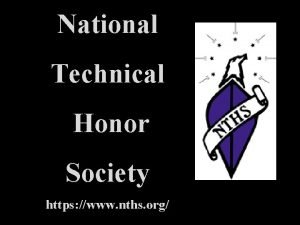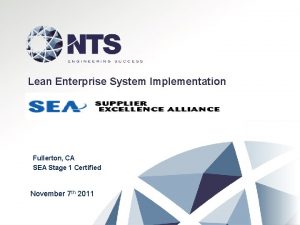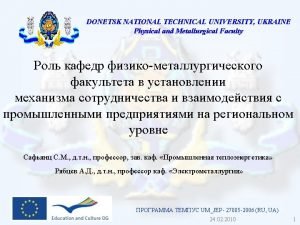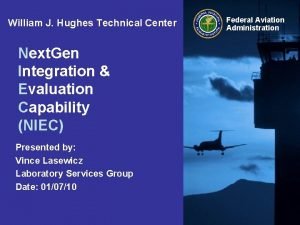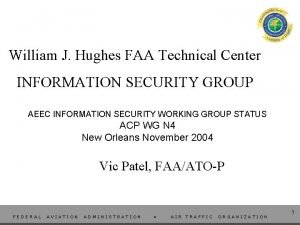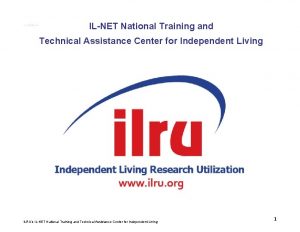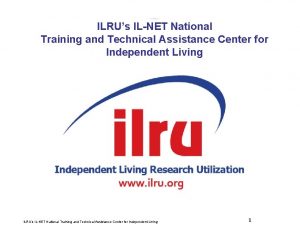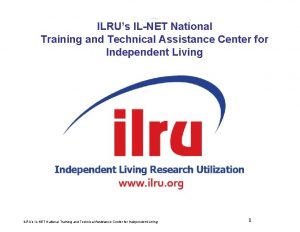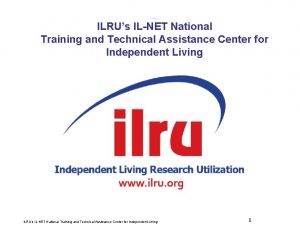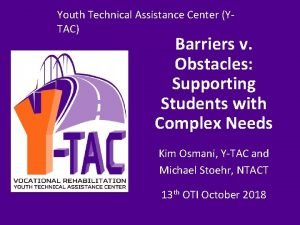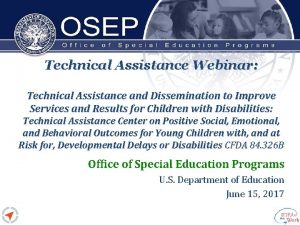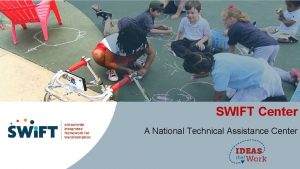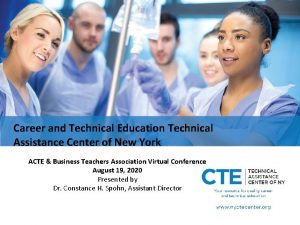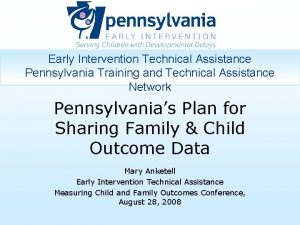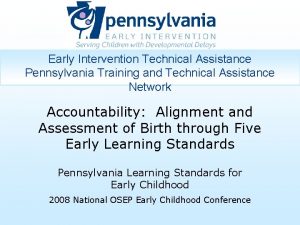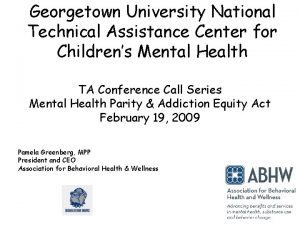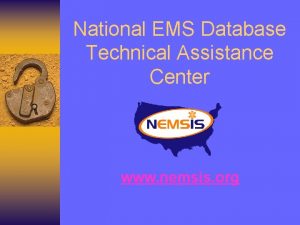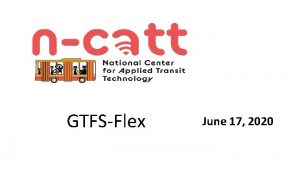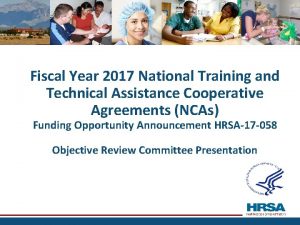ILNET National Training and Technical Assistance Center for
















- Slides: 16

IL-NET National Training and Technical Assistance Center for Independent Living >>Slide 1 ILRU’s IL-NET National Training and Technical Assistance Center for Independent Living 1

>> Slide 2 Creating an Effective SILC & DSE Relationship Panelists: Kathy Cooper Ann Mc. Daniel Paula Mc. Elwee Peter Pike Joan La. Belle SILC Congress February 26, 2020 ILRU’s IL-NET National Training and Technical Assistance Center for Independent Living 2

>> Slide 3 What you will learn • How to identify issues where network members are or could be working together. • Best practices for developing and preserving a positive relationship between the SILC and the DSE. Our panelists will be sharing their own experiences and what they know from other states related to these issues and practices. ILRU’s IL-NET National Training and Technical Assistance Center for Independent Living 3

>> Slide 4 Common Areas of Conflict • Funding sources and disputes • Cash flow and funding approvals • SILC autonomy • SILC appointments • SPIL planning and approval • Power struggles and clarifying roles ILRU’s IL-NET National Training and Technical Assistance Center for Independent Living 4

>> Slide 5 Funding Requests and Sources • DSE must ensure SILC resource plan/funding is “necessary & sufficient. ” • What resources other than Subchapter B funding are made available? ILRU’s IL-NET National Training and Technical Assistance Center for Independent Living 5

>> Slide 6 Cash Flow Concerns • How can you reduce paperwork and “red tape”? • How do you assure timely invoice submission and payment? • Does the source of funding influence flow of money? • How do state laws/rules affect flow of money? • How have you resolved these concerns? ILRU’s IL-NET National Training and Technical Assistance Center for Independent Living 6

>> Slide 7 Disallowing SILC Expenses • Does the DSE have authority to disallow SILC expenses? • Does the DSE “approve” the SILC budget? Expenses? • How does this affect SILC autonomy required by law? ILRU’s IL-NET National Training and Technical Assistance Center for Independent Living 7

>> Slide 8 SILC Autonomy What are some of the ways that you assure the SILC’s autonomy? • Select and supervise own staff (even if assigned by DSE) • Develop and manage own budget and expenses • Submit recommendations for appointment to Governor or appointing authority • Fulfill responsibilities in the Rehabilitation Act, as amended • Comply with laws and regulations ILRU’s IL-NET National Training and Technical Assistance Center for Independent Living 8

>> Slide 9 Appointments to SILC • SILC indicators of minimum compliance require SILC policies and procedures to include: • Method for recruiting new members • Method for reviewing applications • Regularly providing recommendations for eligible appointments to the appointing authority • What is your SILC’s relationship with the appointing authority? • Is there a role in the process for the DSE? ILRU’s IL-NET National Training and Technical Assistance Center for Independent Living 9

>> Slide 10 How does the Network Collaborate on SPIL Planning and Approval? • SILC is responsible for SPIL development • SPIL must be developed by SILC and CIL directors in the state • SPIL must be approved by SILC and CILs and signed by SILC Chairperson and majority of CIL directors • DSE signs the SPIL agreeing to serve as DSE – NOT to approve the content ILRU’s IL-NET National Training and Technical Assistance Center for Independent Living 10

>> Slide 11 Power Struggles and Clarifying Roles How have you addressed or prevented power plays? • One partner “holds the SPIL hostage” by refusing to sign until they get what they want. • One of the partners assumes control of the process. • Partners don’t fully understand their roles and authorities. • Note that it isn’t required to include the DSE in SPIL development, although it may be desirable. • Training or retreat with all partners can be very valuable in: • Getting everyone on the same page • Fully understanding the roles of each partner • Establishing a clear vision and common goals ILRU’s IL-NET National Training and Technical Assistance Center for Independent Living 11

>> Slide 12 What are some Best Practices for Communication? • Regular communication between the SILC and DSE (& CILs) can prevent many problems • Clear understanding of each other's roles • Clear understanding of how funding will be used • Opportunities for on-going communication: § Inclusion in SILC meetings § Inclusion in DSE meetings § Inclusion in CIL association/organization meetings ILRU’s IL-NET National Training and Technical Assistance Center for Independent Living 12

>> Slide 13 Best Practices for Mutual Respect and Partnership • Is communication at “director-to-director” level? • Do you see each other as partners – on the same level? • How do you work to value each other's missions and goals? • How do you facilitate communication among partners? ILRU’s IL-NET National Training and Technical Assistance Center for Independent Living 13

>> Slide 14 Final Questions & Discussion ILRU’s IL-NET National Training and Technical Assistance Center for Independent Living 14

>> Slide 15 Presenters’ Contact Information • Kathy Cooper – kathy. cooper@silck. org; 785 -234 -6990 • Joan La. Belle - joan. l@disabledresourceservices. org; 816 -500 -5307 • Ann Mc. Daniel - ann. meadows@wvsilc. org; 304 -766 -4624 • Paula Mc. Elwee - paulamcelwee. ilru@gmail. com; 559 -2503082 • Peter Pike - peter. pike@state. co. us; 303 -318 -8568 ILRU’s IL-NET National Training and Technical Assistance Center for Independent Living 15

>> Slide 16 IL-NET Attribution The IL-NET is supported by grant numbers 90 ILTA 0001 and 90 ISTA 0001 from the U. S. Administration for Community Living, Department of Health and Human Services, Washington, D. C. 20201. Grantees undertaking projects under government sponsorship are encouraged to express freely their findings and conclusions. Points of view or opinions do not, therefore, necessarily represent official Administration for Community Living policy. ILRU’s IL-NET National Training and Technical Assistance Center for Independent Living 16
 Ilnet
Ilnet Ilnet fortune
Ilnet fortune National research center for career and technical education
National research center for career and technical education Nde rule 51 technical assistance document
Nde rule 51 technical assistance document Sample technical assistance given to teachers
Sample technical assistance given to teachers Sample technical assistance given to teachers
Sample technical assistance given to teachers Sample of technical assistance plan for teachers
Sample of technical assistance plan for teachers Fda technical assistance network
Fda technical assistance network Travel assistance center
Travel assistance center Catholic charities immigration houston
Catholic charities immigration houston Casualty assistance officer training
Casualty assistance officer training National technical honor society graduation cords
National technical honor society graduation cords National technical systems fullerton
National technical systems fullerton Donetsk technical university
Donetsk technical university Kharkiv national technical university
Kharkiv national technical university William j. hughes technical center
William j. hughes technical center William j. hughes technical center
William j. hughes technical center
